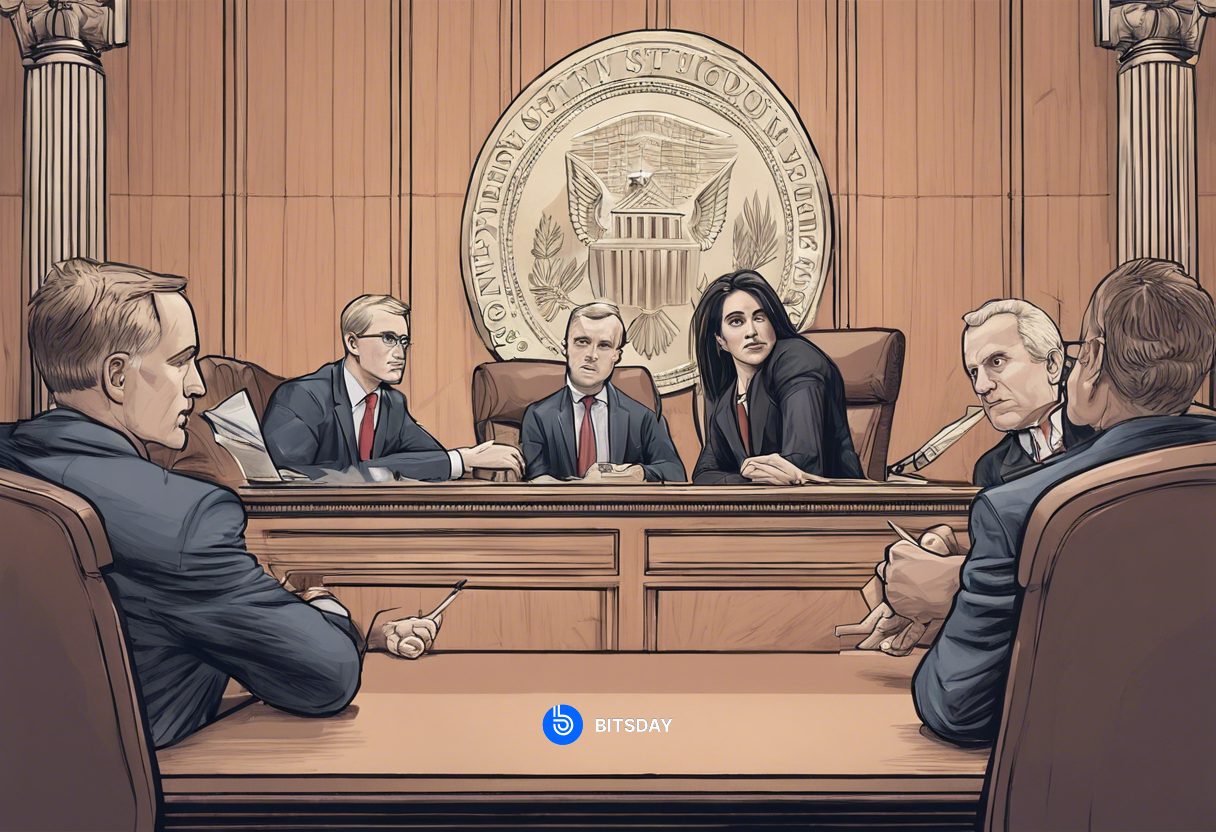- Home
- Police & Regulations
- Coinbase's Legal Showdown: Judge Deliberates on Bold Dismissal Move in SEC Battle
Coinbase's Legal Showdown: Judge Deliberates on Bold Dismissal Move in SEC Battle

A crucial legal battle is on the horizon as a federal U.S. judge prepares to oversee proceedings between Coinbase and the Securities and Exchange Commission (SEC), centering around alleged violations of U.S. law by the cryptocurrency exchange. At the core of the case is the SEC's assertion that Coinbase engaged in the trading of unregistered securities, prompting the exchange to petition for the dismissal of the charges. The upcoming hearing in a federal court in New York is anticipated to feature an extensive four-hour session of oral arguments, providing insights into the industry's response to regulatory scrutiny.
In this legal clash, Coinbase is striving to persuade Judge Katherine Polk Failla of the U.S. District Court for the Southern District of New York to dismiss the case – an unconventional move underscoring the gravity of the situation. The prolonged duration of oral arguments, typically favoring the government in enforcement cases, accentuates the significance of the conflict between the crypto industry and the regulatory body.
Patrick McCarty, a financial consultant and former SEC lawyer teaching crypto classes at Georgetown Law, acknowledges the infrequency of the government losing on summary judgment motions but posits that it remains a plausible outcome. The judge's forthcoming decision, expected in the ensuing months, could align with either Judge Analisa Torres, who ruled against the SEC in the XRP case, or Judge Jed Rakoff, who recently sided with the SEC in a case involving Terraform Labs.
The crux of the matter lies in the interpretation of the Howey test, a pivotal law employed by the SEC to identify securities. The SEC contends that purchasers of digital assets anticipating profits categorize the asset as a crypto security. Conversely, Coinbase asserts that tokens traded on its platform do not qualify as securities unless there exists a formal obligation for profit-sharing between the issuer and the purchaser.
This case assumes pivotal significance as it delves into the ongoing debate surrounding whether these digital assets should be classified as investment contracts or securities transactions under the Howey test. The outcome could exert a substantial influence on the legal precedent for future crypto-related cases, thereby shaping the regulatory landscape.
With each side allotted a two-hour slot to present its case, the protracted deliberation underscores the complexity of the issues at hand. Should the judge rebuff Coinbase's request for an early resolution, the dispute will proceed to trial, potentially revealing internal SEC documents during the proceedings.
Despite the focus on legal arguments, both the SEC and Coinbase concur on the facts of the case, emphasizing their discord lies in the interpretation of existing laws. Legal experts, including Chris Odinet from the University of Iowa College of Law, underscore the high stakes involved, given the inherent connection between the case's resolution and Coinbase's business model.
The scheduled hearing closely follows the SEC's recent setback in approving a spot bitcoin exchange-traded fund (ETF). Coinbase appears ready to draw parallels between this case and the SEC's court loss against Grayscale, asserting the regulator's "arbitrary and capricious" actions against crypto firms.
Judge Failla's prior stance that ether (ETH) is a commodity, not a security, suggests a potential departure from SEC leaders' positions. While the legal dispute may not conclusively settle the ongoing debate, it signifies another noteworthy chapter in the evolving relationship between the crypto industry and regulatory authorities.
Read More: BitGo Secures In-Principle Approval as Key Payments Player in Singapore's Crypto Landscape

Trending



Press Releases

Deep Dives





 Русский
Русский


